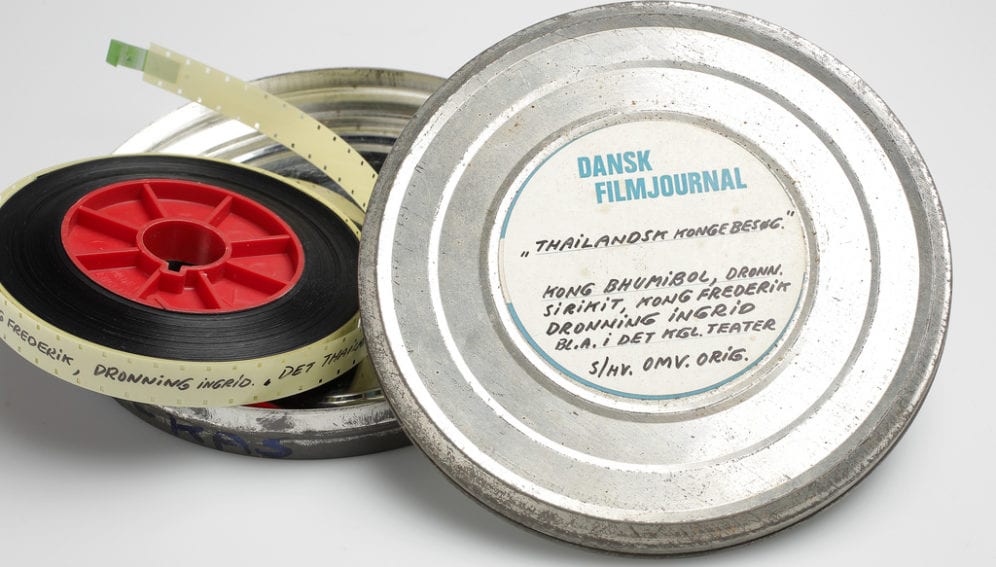By: Mićo Tatalović
Send to a friend
The details you provide on this page will not be used to send unsolicited email, and will not be sold to a 3rd party. See privacy policy.
July 2010. I was strolling along the main boulevard of Novi Sad in Serbia, passing by the blooming linden trees and cafés where the locals sip cappuccinos on packed outdoor terraces.
I was attending Cinema City, the city's annual international film festival. Passing by the large temporary outdoor screen in the historic town square, I proceeded through a passageway into a shady courtyard, where festivalgoers awaited a panel discussion on the state of newspaper film criticism.
A familiar story unfolded: big newspapers are firing their experienced film critics and dropping sections dedicated to cinema.
The field of reviewing and writing about films in an in-depth way is in disarray, the panellists said. Good quality, influential reviews are hard to come by and anyone can now call themselves a film critic online.
The story, and its navel-gazing nature, reminded me of the often-decried 'crisis in science journalism', at least in the West. Just like film critics, science journalists meet to discuss this crisis and what to do about it — often forgetting that it is not a problem specific to their industry, but part of a wider problem with funding specialist journalism, and print media in general.
The proliferation of bloggers
Another big fear in science journalism, most recently discussed at this year's World Conference of Science Journalists (WCSJ2013) in Helsinki, is the onslaught of bloggers.
Since their humble beginnings about a decade ago, science bloggers have proliferated.
Despite this growth, few science blogs from the developing world are widely known or hosted by the main international media, such as the Guardian.
And even as the world is waiting for developing-world science bloggers to become more prominent, science journalism discussions in the West have often focused on whether bloggers can ever offer the same quality of science coverage as journalists — and, if they can, whether they will run them all out of business, given that they mostly write for free.
Also, are bloggers too close to science, promoting it rather than offering the objective and critical analysis that professional journalists do?
Escaping PR control
Once again, I discovered that these fears are not unique to science journalism. They also exist among film critics, as I learnt at the Göteborg International Film Festival in Sweden in February, during a panel discussion on how film journalism was changing.
What emerged was that critics have little scope for original reporting as they are bombarded with PR and have to cover all the same high-profile films that are being released in a given week to ensure they keep up with competitors who are getting the same press releases.
Similar arguments over weekly embargoed press releases from key scientific journals have been a mainstay of discussion in science journalism circles. The media agenda is set by those who have the money to pay for PR, critics of the system say.
It's not all doom and gloom for film critics though, and there do seem to be opportunities for young people. One example is the Berlin film festival's Talent Campus training programme for aspiring film critics, with recent participants having come from around the world.
Similar opportunities exist for young science writers, such as the recent fellowships for developing country journalists to attend the WCSJ2013. But more should be made available and they should be linked to major scientific conferences, offering opportunities to learn from the best writers while they report from major events.
“The more we watch the world from somebody's perspective, the more his perspective gets impossible to ignore.”
Marit Kapla
Films and development
While attending film festivals, I have also noticed links between films and development — sometimes explicit, sometimes less so.
For example, from 1998 to 2011, the Göteborg International Film Festival Fund cooperated with SIDA (The Swedish International Development Cooperation Agency) — one of SciDev.Net's funders — to help young filmmakers in developing countries make films and learn skills.
This year, the festival had special sections focusing on films from Chile and Iran; picking up on the themes of political repression and the movement towards a democratic society. Many new technology projects are now working towards achieving similar goals, for example, from the Middle East's CrowdVoice to Kenyan iHub software and USAID's Make All Voices Count initiative.
The festival's 'Masters' of cinema category — including films from Egypt, Iraq, the Philippines and Thailand — shows that great work in cinema, as in scientific discovery, comes from around the world.
The importance of film also extends to reaching across borders between countries and people. This was highlighted by the Göteborg festival's artistic director, Marit Kapla, in the festival's catalogue: "The more we watch the world from somebody's perspective, the more his perspective gets impossible to ignore".
Saving stories
A section at this year's Fribourg International Film Festival — previously the Third World Film Festival — showcasing films from Africa, Asia and Latin America and set in a small Swiss Alpine town, a section was dedicated to the World Cinema Foundation.
Established by US film director Martin Scorsese, the foundation "comes to the rescue of cinematographic masterpieces coming from countries without national film archives, this saving them from perdition", as the festival website put it.
The films screened were from India, Indonesia, Iran and Korea, and tackled issues such as the preservation of indigenous culture; education; and economic development in a corrupt environment.
While science often helps us build technologies and systems, cinema has a role in shedding light on the human side of sustainable development.
Science journalists and bloggers — despite all the debates on the media crisis — flock to cover key international scientific and development conferences, while film critics gather at international film festivals and get their fix of development stories.
Both go on to tell stories to their audiences, and both consider themselves endangered species.
Mićo Tatalović
News Editor, SciDev.Net
@MTatalovic














